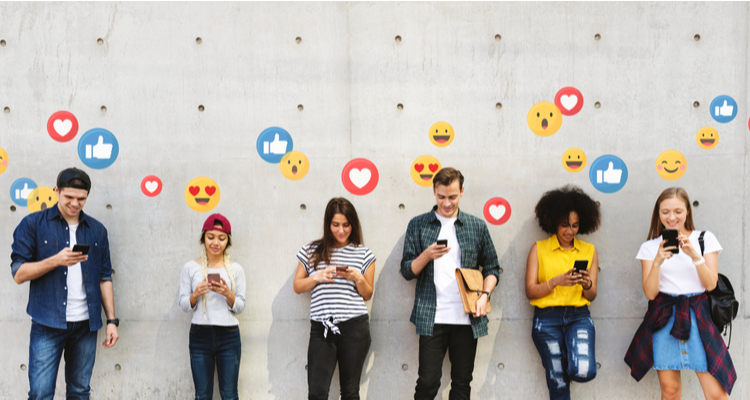
Photo Credit: shutterstock
It’s hard to believe, but it has now been nearly two decades since the first major social media platforms arrived. Twitter, for example, has been around since 2006. YouTube first launched in 2005. And Facebook came online in 2004.
And so there’s plenty of evidence now about the pros and cons of social media. Does one outweigh the other? Let’s take a closer look.
Pros
In many ways, social media has delivered on its original mission to keep us all connected online. In 2005, just 5% of the population was using social media on a regular basis. In 2019, though, that figure had spiked to 70%. And it’s even higher today. Basically, everybody is on social media these days – our friends, our colleagues, our family members, our politicians, and our business leaders. And social media has made the world seem so much smaller. Someone living in Paris, Texas can have real-time conversations with people living in Paris, France. So that definitely has to count as a major plus for social media.
In addition, social media has made us a lot smarter. Yes, some of us continue to use social media primarily to watch silly cat videos on YouTube, but many others are using social media to become more informed about the world around them. They are learning new job skills, raising money for good causes, and researching important facts and information. This has been a huge boost for civic engagement, as well as the ability for grass-roots political mobilization to play an important role in our functioning democracy.
Finally, social media has completely transformed the world of business. Social media marketing is now the preferred way for many brands and businesses to connect with customers, prospects, and partners. Gone are the days when you could only advertise your business via expensive TV, newspapers or radio ad campaigns. Now you can start a Facebook advertising campaign on a shoestring budget and get your brand noticed literally overnight.
Cons
However, all of these pros have increasingly been weighed down by some very alarming cons. For example, take the area of civic engagement. Yes, more people are following politics and political causes online, but that has led to a very polarized political environment. Sometimes it feels like we are all YELLING at each other instead of talking calmly and rationally. And the ease of putting together a social media ad campaign means that we now have to worry about bots, fake news, misinformation, and disinformation.
Moreover, there are many negative effects of spending too much time online via social media. Yes, it’s fantastic that 97% of teens are now using social media, but it’s not so fantastic that the average teen spends 9 hours a day on social media. Earlier generations may have worried about becoming “couch potatoes” in front of the TV, but what happens to people when they stare at a tiny mobile device for more than half of their waking hours? Thus, it’s no surprise that we’re starting to hear about negative social media impacts in the form of depression, anxiety, and addiction.
What’s next for social media?
At the end of the day, social media is just a tool. It is neither good nor bad by itself. It all depends on how you use it. That’s why it’s becoming increasingly clear that society needs to erect more guardrails around its use. Young people growing up with social media need to be aware of both the pros and cons, and how to deal with common problems on social media.
Parents can play a role here, since many of the most common problems found on social media (e.g. cyberbullying) are just age-old problems that have been newly empowered by technology. If the next 20 years of social media are going to be as successful as the first 20 years of social media, then we will need to make these changes.